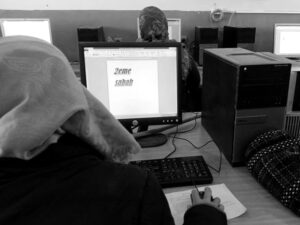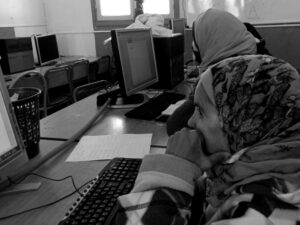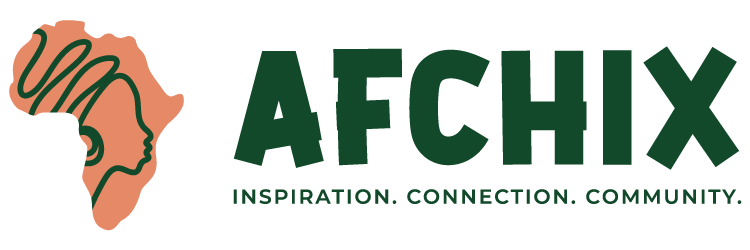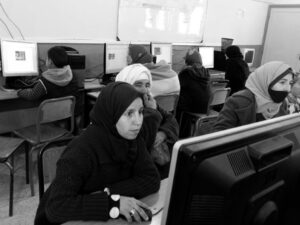By Mari Blumenthal
“I have a normal mobile phone that does not have internet service, but at home, my son has a smartphone with internet access. I use it when he is home,” says Fatima, a 54-year-old mother and housewife about how she can use the internet.
Fatima is one of about 60 women taking part in a series of digital literacy workshops hosted by AfChix as part of its community network project in Ait Izdeg, a rural community in Morocco. Ait Izdeg is one of four community network projects AfChix is implementing as one of the winners of the third round of the WomenConnect Challenge, funded by the United States Agency for International Development (USAID).
However, Fatima’s shares the same reality as millions of other women. According to the GSMA Mobile Gender Gap Report released in 2021, women in low and middle-income countries are 7% less likely to own any kind of mobile phone than men and 15% less likely to own a smartphone. Instead, they tend to rely on sharing or borrowing smartphones from other – mostly male – members of their household.
Mobile ownership is already a key challenge in overcoming the gender digital divide but also contributes to another challenge in getting women online. A lack of regular access to a smartphone also means that women do not get the opportunity to familiarise themselves with these devices or to gain confidence in using them. The same GSMA report also found that female mobile users surveyed are less likely than male users to feel confident performing a new task on a phone by themselves.
A desk review report on the Gender Digital Divide released by USAID in 2021, highlights that digital literacy and skills are rapidly emerging as one of the biggest barriers facing women, especially in achieving online access. USAID defines digital literacy as including both the skills to functionally be able to use the internet and digital technologies, as well as the knowledge of how to do so safely, securely, and with trusted information and protected data.

Dr Houda Chakiri, the Project Coordinator for the Ait Izdeg community network, says many women in the community there do not feel confident in using digital devices. “The majority of women in the community are digitally illiterate and, therefore, we had to start our training there. They say that [the internet] is for young people or that it is not for them. They fear technology.”
The current series of training workshops offer women a safe environment in which to learn basic digital skills such as how to use a search engine or to create and delete files on a computer. The project will later add courses in Digital Marketing to help women build on their newly acquired skills.
Thanks to the training, Fatima says she now uses her son’s phone to communicate with members of her women’s cooperative and has realised how valuable the internet can be for searching for information. “I have already searched for information about preparing jam, raising bees, and growing culinary herbs,” she says.
Most of the women taking part in the training range from 25 to 60 years in age. At 68 years old, Isa might seem an unlikely attendee at a digital literacy training course. But she also runs a successful women’s cooperative and recognises that being online could help her grow its markets. “I am here to learn how to manage and market products and I think that using ICT will help me in my cooperative affairs and in learning new things in a more structured way,” she says.



